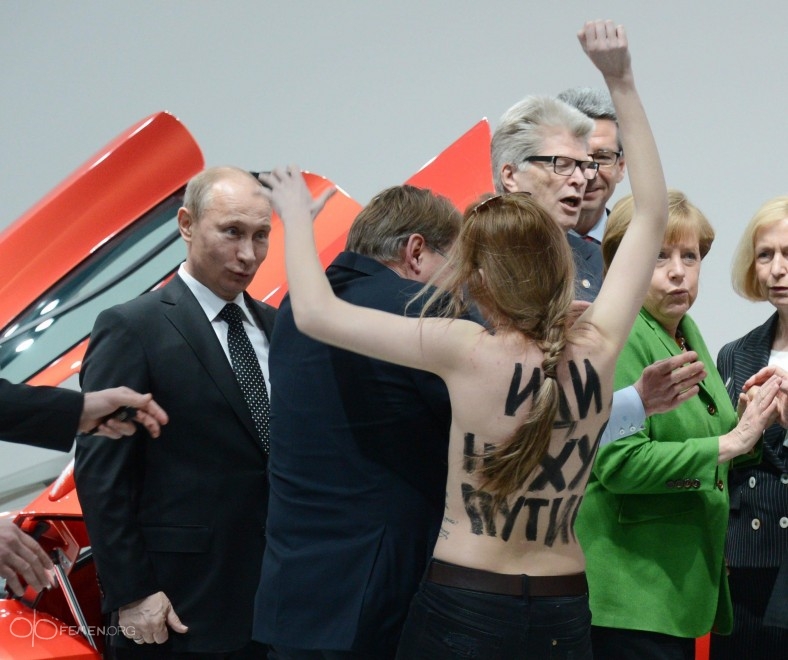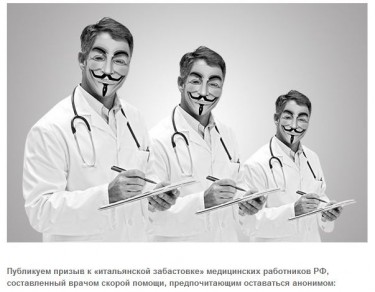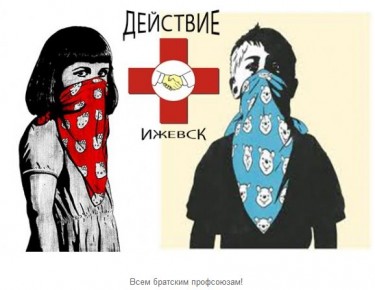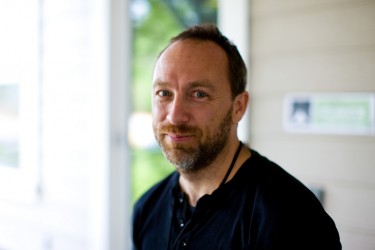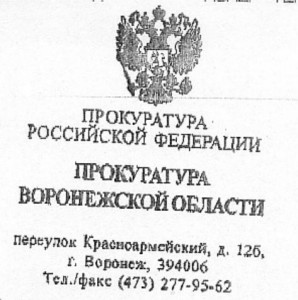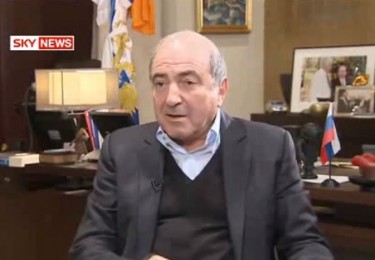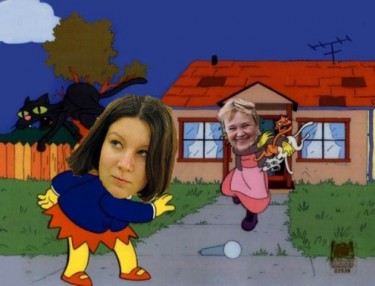Posted on
April 08, 2013 by
Official Russia
Zhukovsky, a mid-sized city just 40 kilometers outside Moscow famed for its aerospace industry, last weekend became the site of a bitterly contested mayoral election, which was marred by reports of electoral fraud and vote-buying. The election was prompted last January, when mayor Aleksandr Bobovnikov resigned at the behest of the acting governor of the Moscow Region, Aleksandr Vorob'yov.
In the last year, Zhukovsky has witnessed a grass roots protest movement [ru] to protect the local Tsagovsky forest, after local authorities stripped it of protected status in order to construct a new road. The local reaction and protests [photo album], which include clashes with police and riot troops, have surprised the authorities, ultimately leading Defense Minister Sergei Shoigu to intervene personally [ru] on the side of the protesters. Having drawn much of their inspiration and public support from the better-known environmentalist movement to protect Khimki Forest [en], many consider the protests to have been instrumental in removing Bobovnikov, who allegedly lost his post due to “the loss of the inhabitants’ confidence” and “the instability of the socio-political situation” [ru].
Eleven candidates appeared on the ballot, including Sergei “The Spider” Troitsky. Troitsky is the leader of legendary Russian metal band Korroziya Metalla [en] and had previously stood in the October 2012 mayoral election in Khimki. The real contest, however, was between the nominally independent Andrei Voityuk (a former official in the Ministry of Emergency Affairs with strong links to Vorob'yov and Shoigu) and Igor Novikov (a member of “opposition oligarch” Mikhail Prokhorov's “Civic Platform”).
The election itself was marred by suspicion and tension long before anyone went to the polling stations. Novikov's campaign website suffered a DDoS attack on March 23, 2013. A week later, activist Ilya Yashin tweeted a picture [ru] of an official notice forbidding any photo- or video-recording by anyone but “representatives of the media”:
Избирком официальным (!) решением запретил наблюдателям съемку на выборах в #Жуковский. Жулики. Совсем охамели.
The electoral commission has officially (!) forbidden observers from taking photos at the elections in #Zhukovsky. Swindlers. Completely egregious behavior.
While Zhukovsky has only about 80,000 registered voters, in order to ensure the election went ahead peacefully, the authorities brought in 600 police [ru] from the Ministry of Internal Affairs, while an estimated 1,000 independent electoral observers [ru] monitored the proceedings.
Despite the presence of these monitors (or perhaps because of it), within hours of polls opening, videos emerged online purporting to show widespread, organized vote-buying on behalf of Voityuk. In the video below, posted by the independent Russian electoral rights group GOLOS [en], people are seen queueing to have papers with the name “Aleksandr [sic] Petrovich Voityuk” stamped by two young women.
The two women report that they are merely “taking note” of the proceedings and that “everything is being done officially,” but seem ill at ease when questioned. When the camerawoman asks those in line if they were “promised any kind of reward,” however, an elderly man in a hat leans forward and replies “of course.” When asked what he was promised, he replies “one thousand roubles” (roughly thirty U.S. dollars).
A similar video posted by youtube user Alex Flaxman showed a large queue outside a local vehicle inspection center.
Moving towards the front of the queue, the cameraman asks several users how much money is being given out. Several reply that they too were promised 1,000 roubles. At the very front, the cameraman asks a man in a leather jacket if there is any sort of pass needed to receive money. The man removes from his wallet a copy of the same paper with the name “Aleksandr Voityuk” seen in the first video. He informs the cameraman that it was given to him by “United Russia.”
The liberal blogosphere reacted angrily to the reports of electoral fraud and to the news that Voityuk had been declared the winner of the election. The next day “в Жуковском” (“in Zhukovsky”) trended on Twitter in Russia and worldwide. User Sapojnik, in a LiveJournal post titled “1000 Roubles for a Vote,” wrote:
На самом деле никто во власти, конечно же, не собирался устраивать никакие «честные выборы». Наоборот: эти выборы руководством МО и даже, возможно, АП воспринимались как выборы «выставочные», «Химки-2». Жуковским власти хотели продемонстрировать urbi et orbi, что они полностью контролируют электоральную ситуацию и что «оппозиция не имеет никаких шансов».
Basically no one in power, of course, planned on staging any kind of “honest election.” On the contrary, the leadership of Moscow Oblast and even, perhaps the Presidential Administration took these elections to be “staged.” A “Khimki Part 2.” The Zhukovsky authorities wanted to demonstrate urbi et orbi that they are in full control of the electoral situation and that “the opposition doesn't stand a chance.”
In a Facebook post, Mikhail Fishman drew similarly depressing conclusions from the election:
Первый: выиграл Войтюк. Второй: нам показали, как “Единая Россия” (или ОНФ) будет выигрывать выборы в Думу. Третий: барьера против фальсификаций, обмана, жульничества любого рода больше не существует. Now it's official.
Firstly: Voityuk won. Secondly, they've shown us how “United Russia” (or the All-Russian People's Front [Putin's new social coalition]) will win the Duma elections. Thirdly, the barrier against falsification, fraud, [and] swindling of any variety no longer exists. Now it's official.
Twitter humorist KermlinRussia reacted to the reports with characteristic levity:
На выборах в Жуковском Единая Россия не стала воровать голоса избирателей и честно скупила их.
In the elections in Zhukovsky United Russia has stopped stealing the votes of the electorate and purchased them honestly.
Not everyone was content to lay the blame solely with the authorities. Some faulted the opposition for failing to win in a city home to a highly educated workforce that has long been a hotspot of anti-Kremlin sentiments. Writing on Twitter, opposition Duma Deputy Ilya Ponamarev pointed the finger at the protest movement's disunity:
В #жуковский все, как всегда - два главных оппозионера не договорились, взяли 30% и 25%, в итоге побеждает единоросс с 35%. Доколе?
In #zhukovsky it's business as usual - the two main oppositionists [Novikov and Communist candidate Andrei Anikanov] took 30% and 25% with the result that United Russia wins with 35%. When will it end?
Similar accusations were leveled by Twitter user iphone_mitko, who faulted the opposition for lackluster campaigning:
Кстати, #Химки и #Жуковский очень яркие примеры беспомощности “оппозиции”. Кричать и митинговать - да. Работать “на земле” - ноль.
By the way, #Khimki and #Zhukovsky are excellent examples of the helplessness of the “opposition.” Shouting and demonstrating - sure. Working “on the ground” - zip.
Such well-documented voter fraud shows that “managed democracy” (where the ruling elite uses its administrative resources to ensure desired electoral results) continues to be the defining characteristic of the Russian political process. If anything, that process has become cruder and more obvious in the last two years. The election also shows that the United Russia brand may be becoming a liability for the elite, as Voityuk ran as an independent, despite strong links to party figures.
But the main lesson from the Zhukovsky election is that over a year on since the Bolotnaya Protests [en] (probably the high water mark of the protest movement) the opposition has yet to make much of a dent in Russians’ widespread political apathy. Indeed, the official turnout in Zhukovsky was a mere 37.6% [ru]. Given the choice between the opposition and the elite, most voters chose simply to stay home.
Written by Daniel Alan Kennedy
· comments (0)
Share: Donate
· facebook · twitter · reddit · StumbleUpon · delicious · Instapaper
Source: Global Voices Online » Russia
